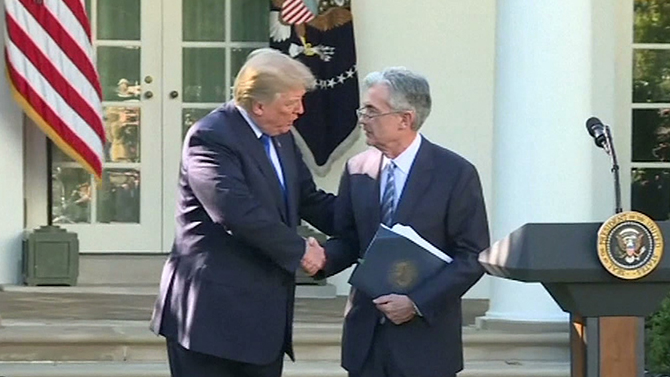Throughout its history, the U.S. central bank has fought to maintain its independence.
The Federal Reserve is arguably facing one of its toughest tests under President Trump…but it isn’t alone.
CGTN’s Owen Fairclough explains why.
When Jerome Powell was nominated as the new head of the U.S. Federal Reserve in late 2017 President Donald Trump couldn’t have been more effusive.
“I am confident that Jay has the wisdom and leadership to guide our economy through any challenges that our great economy may face,” Trump told a news conference at the White house.
Less than a year later, Trump seemed less enamored.
“I think the Fed is out of control,” Trump said in October 2018. “I think what they’re doing is wrong.”
Trump has maintained the criticism of Powell, mostly on Twitter, for raising interest rates because Trump thinks it hinders economic growth.
But the public complaints have broken an unwritten rule for independent central banks — that political leaders are supposed to leave them alone.
“You want to have an independent central bank that looks beyond the next election and says what is right for the entire country,” explains
James Angel, Associate Professor of Finance at Georgetown University.
“If you have a politician who’s attacking the independence of the central bank, then you bring up the whole problem of political interference. That’s dangerous.”
That kind of interference was blamed for Argentina’s inflation crisis, while central banks in the United Kingdom and Turkey, South Africa and Russia have also come under political pressure recently.
Trump isn’t the first president to try to pressure the Federal Reserve. In the 1960s and 70s Presidents Lyndon Johnson and Richard Nixon both put pressure on the central bank for their own ends.
But its independence has grown stronger since it was tasked with using interest rates to keep inflation stable and maximizing employment — the kinds of goals achieved with steady growth. The problem is, they don’t chime with Trump’s aims to turbocharge the economy.
Powell has so far resisted the pressure.
And even if he was appointed by the president, he’s ultimately accountable to the U.S. Congress for how he does his job, not the White House.
 CGTN America
CGTN America

